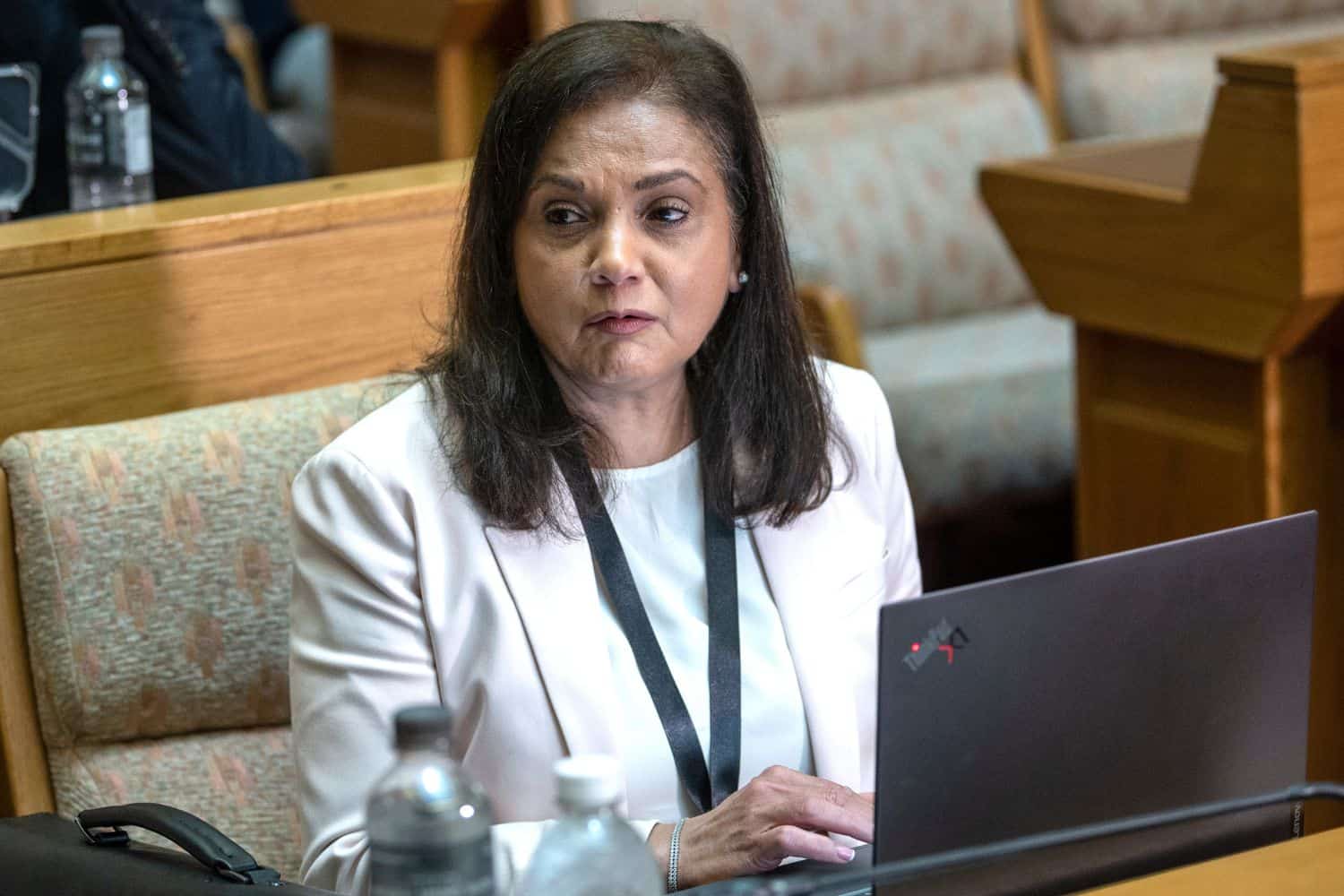'People at the upper-echelons of organised criminality don’t get their hands dirty.'

Despite leading prosecutors in the criminal justice system, National Director of Public Prosecutions (NDPP) Shamila Batohi, admitted to Parliament’s ad hoc committee that South Africa is not succeeding in its efforts to combat organised crime.
Testifying before the committee at the Good Hope Chamber in Cape Town on Tuesday, Batohi gave evidence about the work of the now “disbanded” Political Killings Task Team (PKTT) and confirmed that National Prosecuting Authority (NPA) prosecutors had collaborated with the unit in KwaZulu-Natal (KZN).
“The importance of working together with our partners in law enforcement is hugely important. The system can only be as strong as the weakest link,” she said.
Batohi tell ad hoc committee about PKTT’s work
When evidence leader Norman Arendse asked what stood out to her about the task team’s work during her tenure, Batohi said she could not comment on its success.
She recalled that earlier in her term, complaints were raised, including by then police minister Bheki Cele, about prosecutors allegedly failing to enrol cases from the PKTT.
“There was a bit of a problem in terms of how the prosecutors and the PKTT investigators were working, and there were a number of dockets that were referenced that the police were not happy about,” Batohi said.
The NDPP explained that she subsequently received a report on the matter from KZN DPP Elaine Harrison.
“Apart from that, there are no specific issues regarding the PKTT, so I cannot say whether it was successful or not. It’s something that the DPP would be able to testify about.”
ALSO READ: ‘Ramaphosa was in agreement’: Khumalo on what Mchunu said about PKTT disbandment
Batohi told the committee that prosecutors and investigators typically collaborate from an early stage, using a prosecution-led investigation model designed to ensure stronger cases in court.
She acknowledged that the PKTT’s scope had expanded beyond political killings, including involvement in the University of Fort Hare (UFH) fraud and corruption probe and cases in Gauteng involving criminal syndicates.
Batohi also supported the approach of prosecutors working closely with specific police units, saying it generally improves conviction rates.
However, she stressed that the model, though internationally recognised, still needs improvement.
“Even with some very complex matters, we find that we are not moving as quickly as we should,” Batohi said, attributing delays to systemic issues such as capacity shortages and corruption within the NPA.
“There are various challenges in the system, and the model can only be as effective as the efficiencies in the system as a whole.”
‘Follow the money’
Arendse remarked that the public was frustrated by the lack of successful prosecutions against high-profile criminal cases.
Batohi agreed, saying the country was not winning the fight against organised crime, which includes activities such as drug trafficking, illegal mining, fuel theft, gangsterism, and wildlife poaching.
“The reality is we are not winning the fight against organised crime in this country, and it all starts with good intelligence.”
She said investigations need to be intelligence-driven and financially targeted.
“The other way is you have to follow the money.
“We have to make sure that we have capabilities and capacities in government to be able to do effective, quick financial investigations because people at the upper echelons of organised criminality don’t get their hands dirty, but they certainly don’t stay far away from the money.”
READ MORE: Shamila Batohi’s been in the job for 6 years. Here’s how many high-profile convictions she’s secured
Arendse pointed out that agencies like the Special Investigating Unit (SIU) and the Asset Forfeiture Unit (AFU) succeed in recovering funds, but often fail to see those responsible face criminal prosecution.
“They are not being prosecuted,” the evidence leader said.
In response, Batohi explained that civil and criminal cases require different levels of proof.
She said the SIU refers matters involving suspected criminality to the NPA, but proposed that legislation should be amended so that the SIU refers such cases directly to an investigating agency instead.
“But for a very small group or class of crimes that could go to Idac, the majority of these matters, when we get them, we have to send them to the DPCI for criminal investigations.”
She further explained that the standard of criminal investigations was defined by reasonable prospects of a successful prosecution.
“There is a huge difference between a civil standard of proof and a criminal standard of proof.”
Batohi also expressed frustration that the Zondo Commission did not provide a prosecutorial blueprint for law enforcement agencies.
Watch the ad hoc committee inquiry below:
She said she shared the public’s frustration about the slow pace of accountability, despite the Investigating Directorate Against Corruption (Idac) having taken more than 300 people and entities to court.
“Getting to the point of orange overalls also depends on the court system,” Batohi added.
She highlighted that Idac was made permanent in August last year after previously operating under a secondment model and that efforts were underway to strengthen its capacity.
“That is one of the reasons why it has taken him so long,” she said.
She warned that “Stalingrad tactics” – used to delay court processes – remained a major obstacle.
“There’s a lot of work to be done, including by the judiciary, that requires stringent case management to make sure that these cases do in fact more quicker through the court system.”
NDPP clarifies role
Batohi also clarified misconceptions about her role, explaining that the NDPP does not make direct prosecution decisions.
“It is sometimes misunderstood as the national director deciding to prosecute cases.”
She said DPPs hold the authority to prosecute and that her office functions primarily as a review mechanism.
READ MORE: ‘She must take her bags and go’: MPs slam Batohi’s refusal to name suspended prosecutor
“But, that said, the DPPs do act under the control and direction of the national director.”
Asked whether DPPs were more likely to be targeted by organised crime syndicates, Batohi said both DPPs and prosecutors were vulnerable.
“The DPPs would very often act on advice of the prosecutors in the case. So I think definitely they would be at risk.”
Bail system under scrutiny
After the lunch break, Batohi responded to criticism of the bail system raised during Cele’s testimony.
Cele had called for a review of how bail and parole are granted, calling the bail system “a mess” and parole “another animal” that allowed offenders to reoffend after release.
Batohi defended the underlying purpose of bail, saying it is meant to ensure an accused person’s attendance in court.
She added that prosecutors are often equally frustrated when courts grant bail against their objections.
She explained that prosecutors usually rely on recommendations from investigating officers when deciding whether to oppose bail.
“In circumstances where we find that the magistrate or judge got it wrong, we’ll appeal against it.”
NOW READ: How many inmates were granted parole – and how many were sent back to prison
Support Local Journalism
Add The Citizen as a Preferred Source on Google and follow us on Google News to see more of our trusted reporting in Google News and Top Stories.








